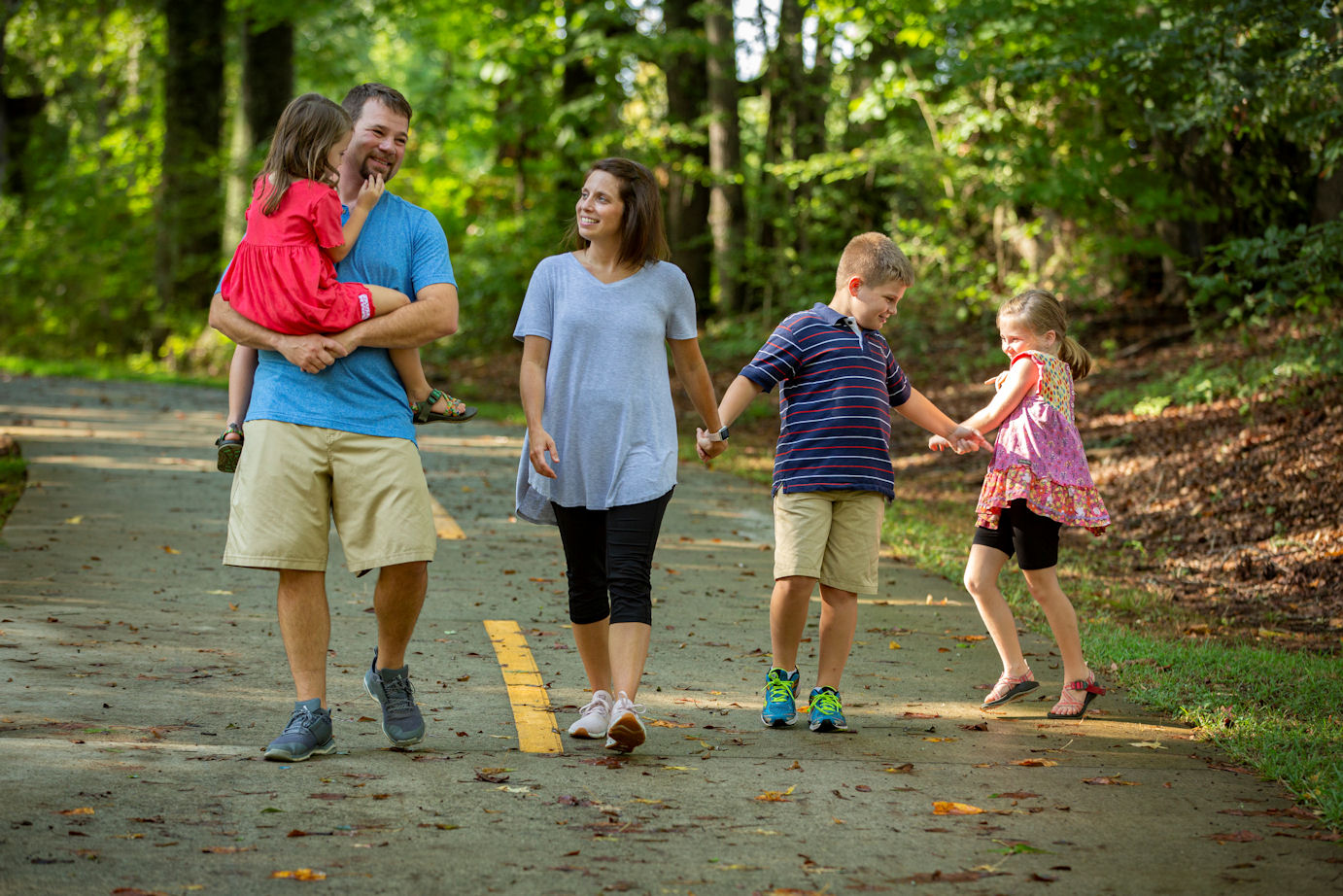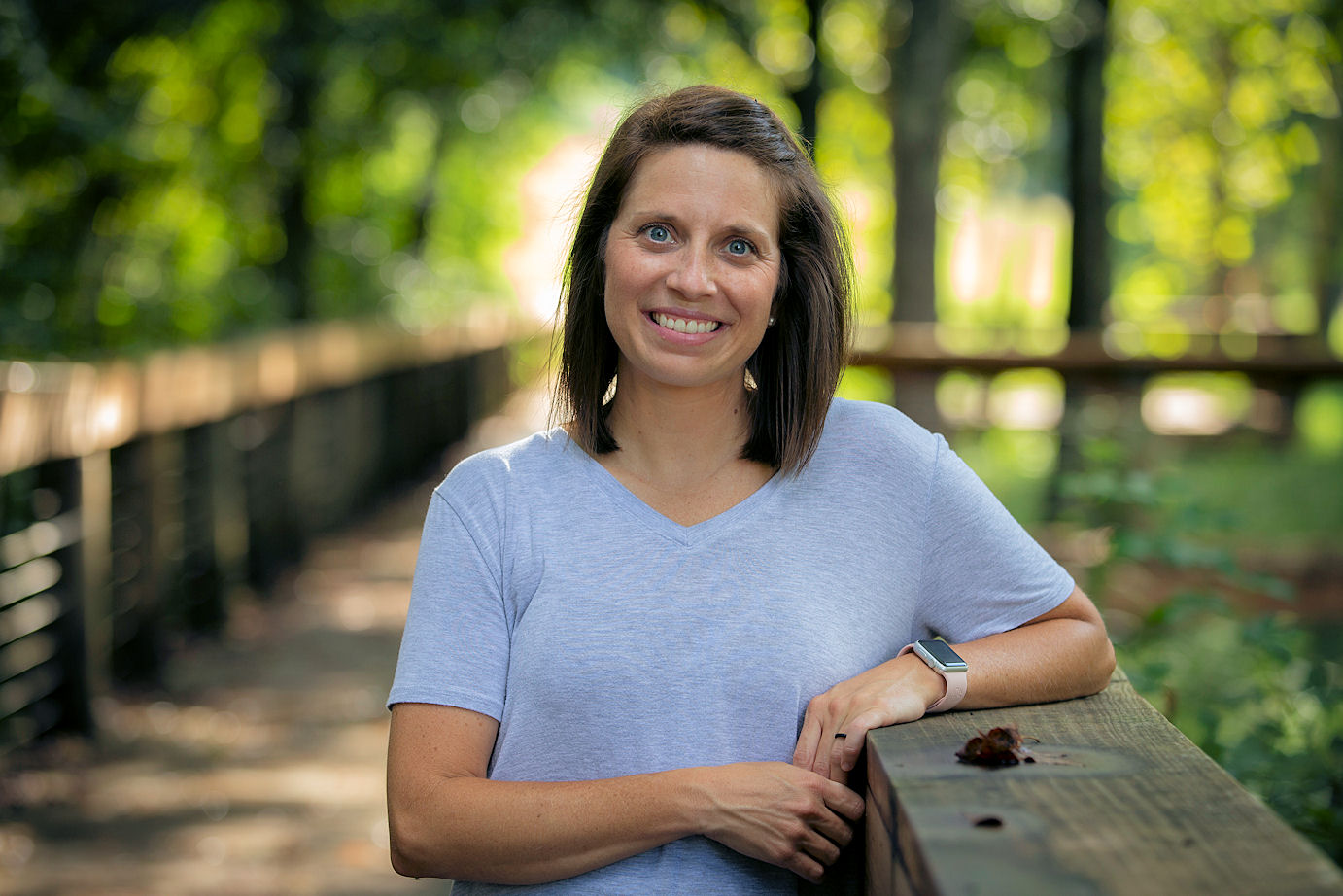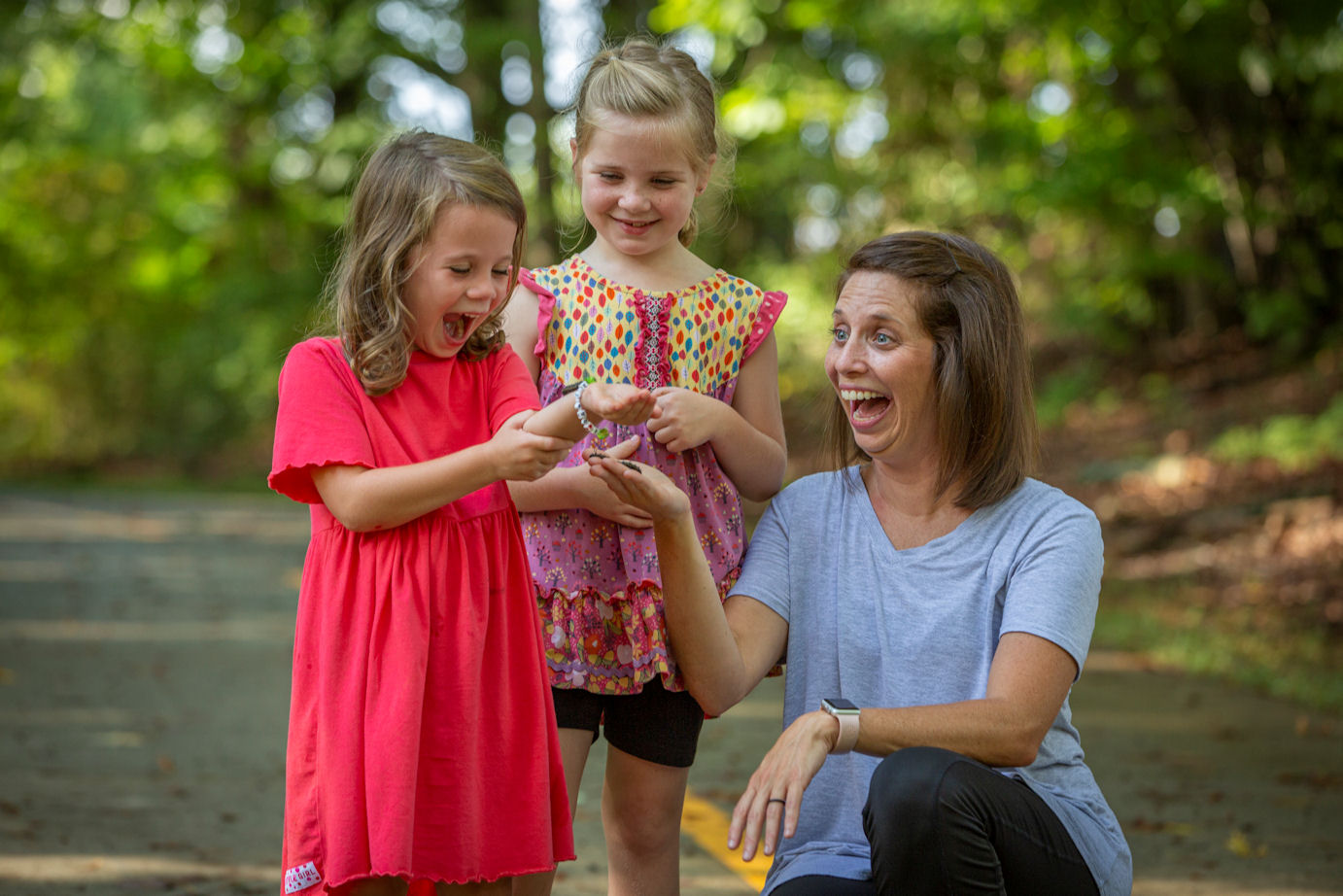After being diagnosed with stage IV breast cancer at 34, Amanda Riggins found the strength to push forward with her busy life — and a silver lining in her diagnosis.
“As sad and devastating as this diagnosis was, I think it has been more positive than negative overall,” Riggins said. “It makes you look at your life, your family and yourself very differently.”

The diagnosis came in October 2018 after Riggins, a busy mom of three who works full-time, felt a lump in her breast.
“I’m a nurse, and I just knew something wasn’t right,” she said.
She went to see her obstetrician-gynecologist, who sent her for a
mammogram. Riggins then had a breast biopsy and a lymph node biopsy, which both showed cancer. A PET scan revealed that her breast cancer had spread to her bones, indicating a stage IV diagnosis.
Riggins sought a second opinion at Northside Hospital. Their diagnosis and treatment plan matched what her doctors at Tanner had recommended exactly.
The diagnosis was shockingly unexpected because she was so young and because she doesn’t have a strong family history of breast cancer. At her age, she wasn’t even supposed to begin receiving annual mammograms yet: the American Cancer Society recommends women start receiving screening mammograms for breast cancer between the ages of 40 to 44, and the cancer specialists at Tanner Cancer Care recommend annual mammograms beginning at 40 to give patients the best opportunity to catch it early.
Advancing Treatment
Her patient care team at
Tanner Cancer Care told Riggins that surgery is not often recommended for stage IV breast cancer, nor is radiation since the cancer has spread to other parts of her body, Riggins explained.
“At stage IV, you’re not fighting disease in limited locations, like the breast and lymph nodes — you’re fighting cancer that has invaded multiple areas in the body,” said
James Qu, MD, a board-certified medical oncologist with Northwest Georgia Oncology Centers and part of the patient care team at Tanner Cancer Care. “The treatment that she received is in the forefront of modern medicine, providing her the best chance of long-term disease control.
“The therapies we’re able to offer patients like Amanda at Tanner are leading-edge,” Dr. Qu said. “We also have clinical trials available, which uses medicines that may potentially make a significant difference in her disease. The medications that she currently takes went through similar rigorous clinical trials in the past and had shown clinical benefit.”
Riggins’ physicians offered a plan that included hormone therapy, since her cancer is estrogen- and progesterone-positive. She also takes a novel targeted oral therapy. Essentially, she takes two pills each day, though one pill is taken for three weeks and then stopped for one week.

The treatment has caused her white blood cell counts to drop and she has had some fatigue, but she hasn’t had any nausea or vomiting, and experienced very minimal hair loss.
“On a daily basis, I feel pretty good,” said Riggins, adding that she doesn’t have any pain and a recent PET scan shows her cancer is not active.
Riggins has continued to work full-time, which she says has played a big role in her overall wellbeing. She is a peri-operative nurse in
short-stay surgical services at Tanner Medical Center/Carrollton.
“My job with my amazing colleagues has been wonderful for me,” she said. “It has been a huge distraction, and it keeps me busy so that I don’t have time to whine about anything or sit around and ponder my situation.”
Her colleagues are very supportive and her schedule is flexible enough to accommodate her medical appointments, Riggins said. She often runs into her own physicians while she’s working.
Her breast specialist,
Raul Zunzunegui, MD, a Susan G. Komen Fellowship-trained breast specialist who is board-certified in surgery. Dr. Qu is her oncologist.
“My doctors are wonderful and since I work at Tanner, they stop by to check on me,” Riggins said.
A New Normal
As she tried to adjust to her new world as a working mom of three with cancer, she pulled her kids out of their activities temporarily. She and her husband made room for some peaceful, calm time in their lives and took time to re-evaluate their family’s priorities.
“It’s very hard to suddenly step into this new life as someone with cancer, but it’s getting easier,” Riggins said.
Riggins said she didn’t expect to learn some things about herself through her cancer diagnosis.
“It really made me reflect on my life, and think about how I can make myself a better person, whether in my career, my family or my faith,” Riggins said.
Riggins is a Carrollton native who says she is extremely grateful to have her extended family nearby to help her navigate her breast cancer. She and her husband and their children recently took a week-long vacation to Rosemary Beach, Florida, with their extended family.
“It was something we had just never made the time to do before, but it was such a great experience,” she said.

Finding a Path Forward
Life is humming along for Riggins, now 35. Her children — ages 10, 7 and 5 — have handled everything in stride, and her husband and entire family have been very supportive.
Looking back, she has some advice for those who are newly diagnosed.
“Persevere and know that it gets better,” she said. “The first few months of my diagnosis were so devastating and you feel lost in the new you, but it does get easier.”
Along the way, it’s important to let people help you, even if you aren’t used to accepting help, she said. Riggins also says that trying to keep a positive attitude can go a long way.
“Remember that trials in life are inevitable, but your attitude and how you deal with those trials is up to you,” Riggins said. “Try to focus on educating yourself as much as possible, reading everything you can, learning from your support groups and advocating for yourself.”
Riggins said she has read books about overcoming cancer and living a lifestyle that is as healthy as possible. She likes to exercise, loves to walk and enjoys being outside.
Riggins has gained valuable insights and perspectives from her online support group of women who have lived for many years with stage IV breast cancer. She also belongs to a Facebook group of women who take the same medications that she does. The women share information and inspire each other to keep learning and living their lives to the fullest — a message she wants to share with others facing a breast cancer diagnosis.
“Stay hopeful and commit to fighting,” she said. “Researchers are making new discoveries every day, so there are more and more possibilities.”